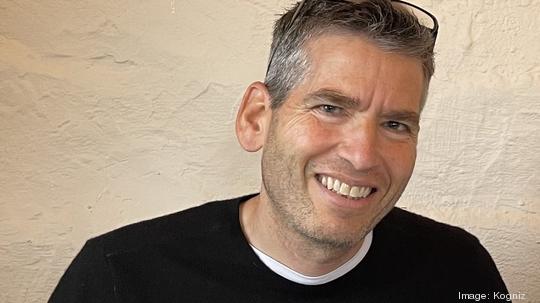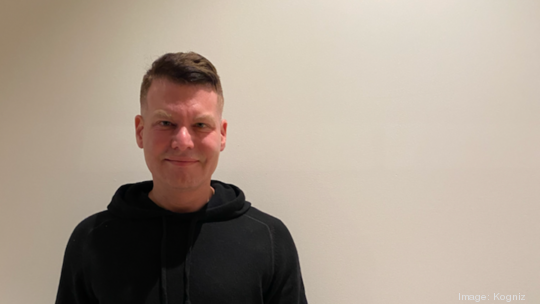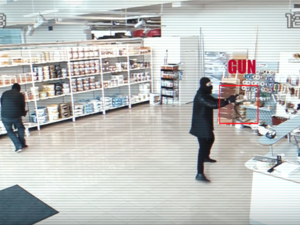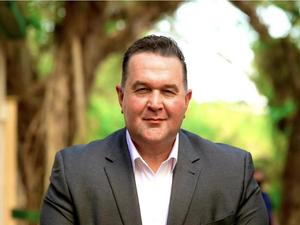
Jed and Daniel Putterman are tech guys. The two brothers grew up in San Francisco, studied computer science and math — Daniel at UCLA and Jed at UC Berkeley — and have both worked in tech and founded several startups going back to the early 1990s.
Then around four years ago, they decided to work together and founded Kogniz, a computer vision and artificial intelligence company based in Berkeley. They wanted to build systems that could help businesses better utilize their security cameras, and started with industrial use cases like basic security and monitoring for safety around heavy machinery.
Daniel, 54, is the CEO and Jed, 51, is the chief product officer.
By early 2020, customers started asking them to provide a no-contact way to do temperature checks to monitor for Covid-19 outbreaks. So they developed a thermal camera system for manufacturing and other industrial settings that needed to stay open throughout the pandemic. And other customers used Kogniz to monitor offices that were suddenly empty.
A year later, eight people were killed in a mass shooting at a FedEx facility in Indianapolis and Kogniz got a new customer request: help us prepare for and, hopefully prevent, a similar situation.
"We realized even before the most recent shootings… that it was just as much a safety issue for these companies as the other things we were helping to solve," Jed told me, adding that they "spent a lot of time talking about, you know, should we deal with guns? We didn't want to be perceived as chasing after these things that are scaring people. But also we only build technologies that we believe fundamentally are making things better and that we're not just making noise."
So they got to work.

They're upfront about the fact that their technology isn't a holy grail solution. A bad camera angle will limit the system's effectiveness, for example, and the system cannot detect concealed weapons. Response plans also require layered and thoughtful approaches that are customized to an organization's operational needs.
But what their technology can do — detect openly brandished weapons — it does incredibly well. The company says it has eliminated the potential for false alerts by combining computer vision with a layer of human review so that an alert can be verified within seconds.
Then, if a weapon is positively identified, a previously prepared response plan can be quickly activated — such as automatically calling the police or initiating a lockdown.
Unlike some security systems, Kogniz does not use facial recognition technology. It doesn't scan faces at all. Rather, its gun detection software only scans for and zooms into images of potential weapons.
How would you go about testing a product for such a sensitive, dangerous real-world situation? Kogniz says it has developed digital simulations that can mimic a real threat.
"We have high confidence in our models," Jed said. "And then if a customer wants to actually prepare for it or confirm the system is working… we have a way to simulate that which is real from a camera perspective but doesn't require someone to walk around with a weapon."
Kogniz also offers a suite of computer vision-enabled services for a couple dozen different use cases including automotive safety and monitoring for manufacturing defects.
The company charges customers based on the number of cameras used and locations for its ready-to-go products and can also provide more customized services, but it is making the gun detection software as accessible and affordable as possible so schools and other organizations of all sizes can use it. Additional services can then be added on through incremental upgrades, as well.
On Tuesday, Kogniz announced it has raised $10 million in seed funding from Ulu Ventures and other investors including Superset Venture Studio, The Indy Fund, K20 Fund, H. Barton Asset Management.
The company currently has around two dozen employees and is aiming to double its team over the next year, particularly across engineering and sales and marketing, Jed told me. Daniel along with most of its engineering team are based in Montreal, and Jed and the rest of the team are based in the Bay Area.
Other companies that have developed technology to detect or respond to shootings include Austin-based Athena Security and Fort Lauderdale-based Critical Event Response Applications.







